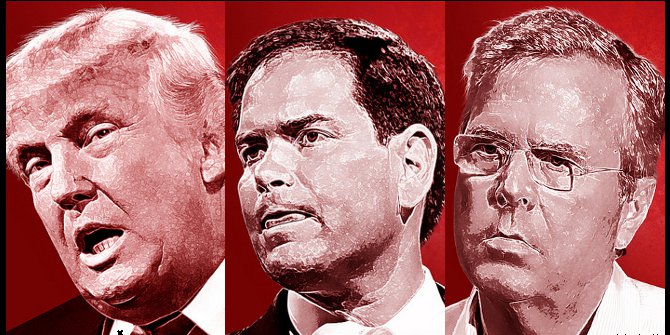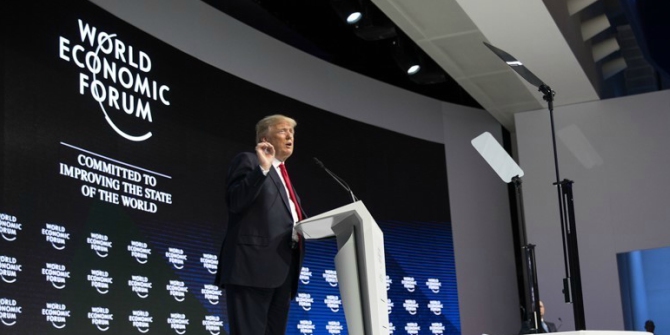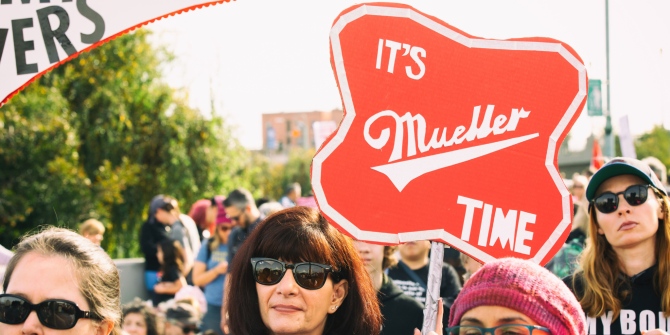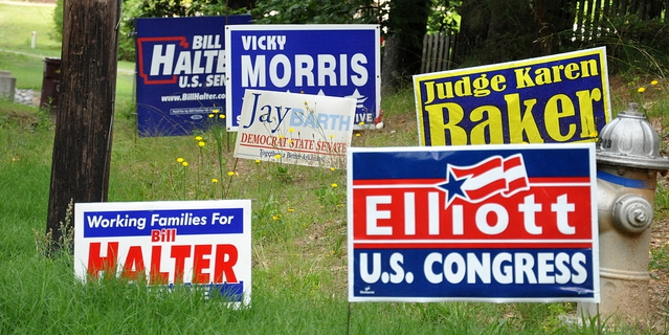 The Republican Party held its first debate – the first of the 2016 presidential cycle – on Thursday. Jenny Tatsak writes that the debate had no clear winner, and that while the billionaire and frontrunner, Donald Trump was able to show his charisma, he did not show character or competence. She argues that in order to gain the credibility needed to reach the top of the GOP’s crowded field and win the nomination, a candidate will need to demonstrate character, competence, and charisma.
The Republican Party held its first debate – the first of the 2016 presidential cycle – on Thursday. Jenny Tatsak writes that the debate had no clear winner, and that while the billionaire and frontrunner, Donald Trump was able to show his charisma, he did not show character or competence. She argues that in order to gain the credibility needed to reach the top of the GOP’s crowded field and win the nomination, a candidate will need to demonstrate character, competence, and charisma.
The first Republican debate of the 2016 race for the White House on Thursday scored record ratings. This unprecedented interest in a primary campaign debate is due in large part to the crowded field of presidential hopefuls, and curiosity about its frontrunner, Donald Trump. Despite Trump’s headline-grabbing soundbites, no candidate emerged victorious.
Presidential debates are contests in credibility. Primary election debates are uniquely important opportunities for the electorate, the ultimate judge of the competition, to gather information on lesser known candidates and assess the candidates’ readiness to lead.
Originally articulated in Aristotle’s Rhetoric, the success of communication is heavily dependent on the source’s believability. Drawing from the character (ethos), competence (logos), and charisma (pathos) originally used to judge credibility, it becomes clear that no one candidate won the first Republican debate’s credibility contest.
Character
While character is considered the most pervasive aspect of source credibility, it is the most difficult to attain. The mistrust of the profession makes this aspect of credibility particularly difficult for politicians. Political communication scholars, Gary C. Woodward and Robert E. Denton, Jr., in Persuasion and Influence in American Life, note one exception: “No public figure from our recent past has shown more skill in using ethos-building devices than former President Ronald Reagan.” Senators Rand Paul and Ted Cruz, both with strong ties to the Tea Party, widely considered in sharp contrast to Reagan’s moderate Republicanism, drew comparisons to the still highly-revered 40th President.
Fairness and goodwill for the audience garner favorable impressions of a speaker’s character. When asked about his opposition to gay marriage, Ohio Governor John Kasich said: “I just went to a wedding of a friend of mine who happens to be gay. Because somebody doesn’t think the way I do, doesn’t mean that I can’t care about them or can’t love them.” His honesty demonstrates a respect for difference audiences seek in candidates.

Credit: DonkeyHotey (Flickr, CC-BY-SA-2.0)
Competence
All the candidates touted their experience and accomplishments as evidence of their ability to be president. However, the debate format left little time for in-depth explanations of specific plans to enact the change their presidency would offer the country. With ten candidates in the prime time debate, speaking time ranged from Donald Trump’s 10 1/2 minutes to Rand Paul’s five minutes. Despite the challenges of time limits, Governor Chris Christie was able to detail a very specific plan to fund Medicare and Social Security. Governor Mike Huckabee called for the repeal of Roe v. Wade supported by both scientific and constitutional evidence. Senator Marco Rubio and Governor Jeb Bush debated federal involvement in education curricula. Neurosurgeon Dr. Ben Carson offered the most unique declaration of competence, “I’m the only one to separate Siamese twins.”
Charisma
Donald Trump’s bombastic rhetoric was showcased in his defense of plans to build a wall around Mexico to prevent illegal immigration; rationalizing the outrage over his name calling as “the problem with political correctness;” and justifying donations to Hillary Clinton to ensure her attendance at his wedding. Although Trump’s enthusiasm, confidence, and commitment sparked much criticism, he was the charismatic standout of the debate. Without character and competence, charisma is fleeting and will not sustain credibility.
There is a lot riding on these early debates. Unlike general election debates, primary election debate viewers assess the credibility of the party as well as a single candidate. Both parties need strong showings in primary debates to attract the undecided voters without strong party affiliations. These early debates lay the foundation for the eventual nominee’s appeals to the base as well as undecided voters. While all the candidates represented the range of conservative positions we come to expect from the GOP, the first debate was a draw. To emerge from this crowded pack, a candidate must demonstrate character, competence, and charisma necessary to win the ultimate credibility contest in the voting booth.
Please read our comments policy before commenting.
Note: This article gives the views of the author, and not the position of USAPP– American Politics and Policy, nor of the London School of Economics, or Walsh College.
Shortened URL for this post: http://bit.ly/1gsn5aK
_________________________________
 Jenny Tatsak – Walsh College
Jenny Tatsak – Walsh College
Jenny Tatsak is a Professor of Business Communication at Walsh College. Her fields of interest include persuasive campaigns and strategic communication. She worked in a number of capacities on political statewide, regional, and national campaigns, including campaign manager and primary spokesperson.







1 Comments